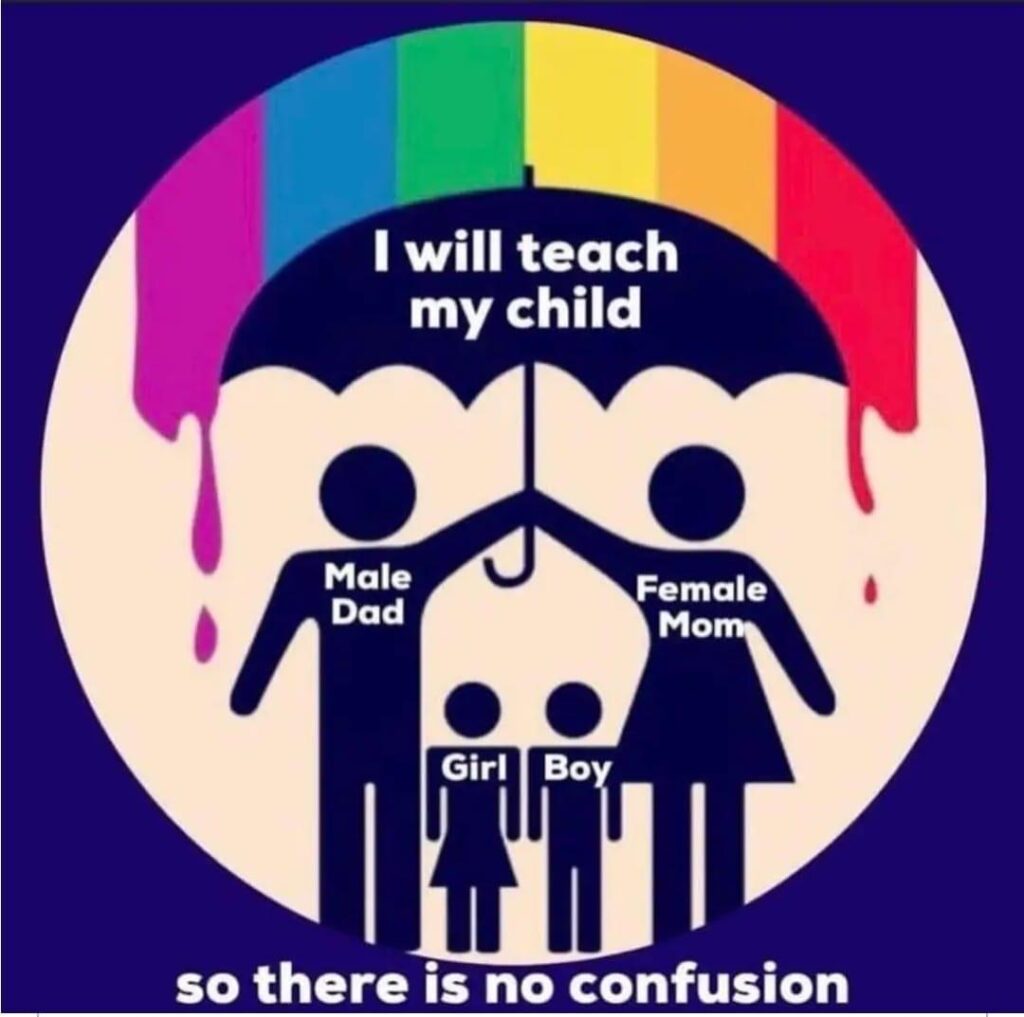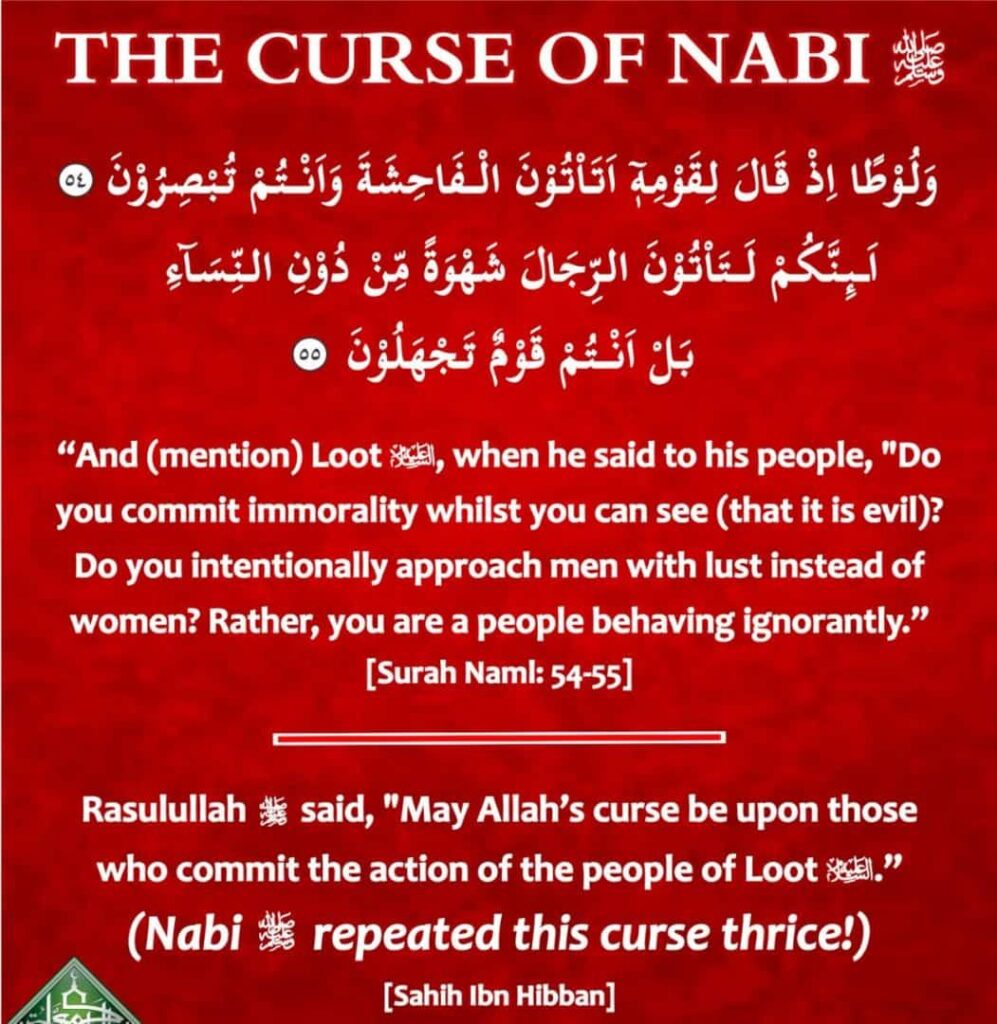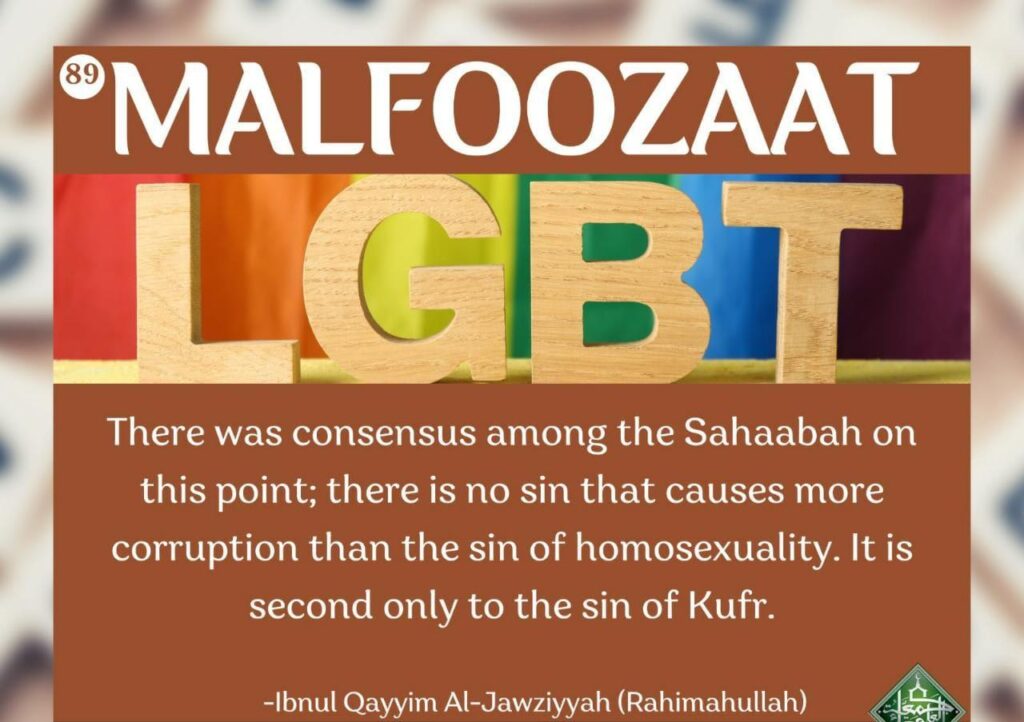Five Questions Raised by the LGBTQ Community (or sometimes by innocent children due to lack of knowledge) from the lecture of Shaykh Yasir Qadhi, Texas.

1. Why does Allah SWT care if two people love each other, same gender or not?
To answer this we need to look at the Qur’an which explicitly mentions the story of Loot AS and uses the word Fahisha. There is “ijma” unanimous consensus that homosexuality is Haram, nobody ever disagreed with that from the Ummah, past or present.
We must remember anything that Allāh SWT prohibited is not only Haram but usually they are things that are harmful and detrimental for us.
Islam promotes opposite gender unions, via this avenue procreation is possible and family life with children is achieved by this. Even in the animal kingdom, we see naturally, the male is attracted to the female. If someone has same-sexsinner, but tendencies and struggles with this habit, they will be a sinner but it’s once you no longer think it’s Haram and be proud of your sin it leads to kufr/disbelief.

2. Why does it matter if two people sin in private? How does it harm Islam? Why do Imams and Preachers need to keep badgering us about it?
Firstly, let us establish some facts, nobody is knocking down your bedroom and nobody is invading your privacy. Every human is a sinner and those sins done in private still need to be preached against and the masses need to be educated regarding them.
What is an open sin?
Abu Huraira RA: I heard Allah’s Messenger (ﷺ) saying. “All the sins of my followers will be forgiven except those of the Mujahirin (those who disclose their sins to the people). An example of such disclosure is that a person commits a sin at night and though Allah screens it from the public, then he comes in the morning, and says, ‘O so-and-so, I did such-and-such (evil) deed yesterday,’ though he spent his night screened by his Lord (none knowing about his sin) and in the morning he removes Allah’s screen from himself.” Bukhari
For example, if a person drinks alcohol, takes drugs or watches pornography (all done in private) we still have a moral duty to teach people the harms of these sins. Nowadays, sins are no longer private, due to a lack of modesty people are openly committing sins, sharing them (on social media), and then justifying them, we have “pride” over our sins, excuse the pun!
When you commit a sin and regret it, and show remorse you are in the realm of a sinner. But when you commit a sin and flout it, show off, and share it on social media to the point of justifying it then you are no longer a sinner, it is disbelief (kufr). The sin of LGBTQ is no longer a bedroom sin (maybe 20-30 years ago it was). We now have a whole month dedicated to it and millions are being spent to promote it, hence we will preach against it in public!

3. Why do religious people and Imams only talk about the the topic of LGBTQ? There are so many topics like racism, social injustice, and the broken health system. Is it because religious people love talking about sexuality?
We can answer this charge by saying that every sector talks about morality and sexuality in their own way and we Muslims have our way. Even liberalism speaks about their version of sexuality.
WhatAboutIsm
These sorts of questions come under the notion of WhatAboutIsm, don’t fall for it. This notion means to talk about one issue and not another. For example, a father tells his son to make sure you revise for your GCSE exams and pass. The son replies, don’t worry about my revision/exams, Dad. You just make sure you pay the mortgage and the bills and put food on the table! Naturally, the father will reply, what do your exams have to do with the mortgage?
In the same way, people criticise Imams by saying talk about one topic, not another. We see this a lot with workers from the Charity sector who always talk about Syria and Gaza and it’s only about Syria and Gaza, if an Imam talks about Domestic Violence they will say it’s irrelevant and not important. My short answer there are 52 Khutbahs in a year, one for LGBT, one for Syria/Gaza, one for DV, and so forth.

4. Islam teaches us about love, why do you preach against it? Two people love each and you tell us we can’t, isn’t this hate speech?
Nobody is against (halal) love, nobody is against caring for one another. Here we are preaching against the act of sodomy, there’s a big difference. Even if someone had a relationship with the opposite gender before nikah we would preach against it, let alone same-sex relationships which can’t be made halal through nikah.
When an Imam preaches against sin, any sin, it is to teach the masses that this is wrong and unethical. But if a brother comes to us in the Masjid and genuinely tells us he is struggling with the sin of LGBTQ then we will welcome him with open arms and help him to curb his desires, just like we help the alcoholic and the drug addict. Because we are all sinners, join the club! We all sin, maybe just in a different manner.
An article by a gay Muslim who explains his struggles and accepts it as a weakness.
If someone acknowledges they are doing wrong, we will help them. But when you take pride in your sin, how can we take pride in accepting you as our Muslim brother?

5. The LGBTQ Community is one that is a helpful community, they advocate justice and champion our civil rights. You imams with your religious rhetoric are fuelling hatred against them, which consequently leads them to get physically and verbally abused.
Getting help from someone is not a sin, whether they are a Christian or Jew or Gay. But appreciating someone’s help doesn’t mean we facilitate their sin. Read that again
Let us remember in the Seerah a man called Mutim bin Adiyy helped the Muslims but he also worshipped idols, the Prophet SAW appreciated his help and praised him after his death. If someone wants generic help we will help them no matter who they are, like feeding the homeless and handing out sadaqah, we will not ask people their sexual orientation. We will work together where we can.
The Qur’an says, “help each other upon goodness and piety and don’t help each other upon sin and transgression” (Surah Madinah). We will work with any community against racism, injustice and violence but we will not facilitate open sinners. We have a higher Lord SWT to answer to, it’s not a case of you scratch my back and I will scratch yours. No tit for that. Become men of principles.
Dear brothers and sisters, to conclude this topic, our Shariah teaches us purity and wholesomeness, it embraces modesty and shyness. Do not be ashamed of who you are, and do not be enticed by the path of others no matter how dazzling they look. Enter Islam in its entirety and follow the religion completely even if the whole world is against you and doesn’t understand you, we know we are following Haqq that’s all that matters, Allah keep us stead, Ameen.